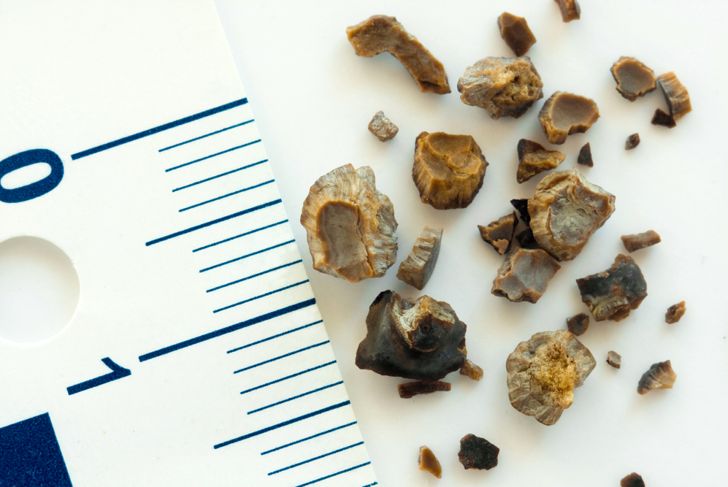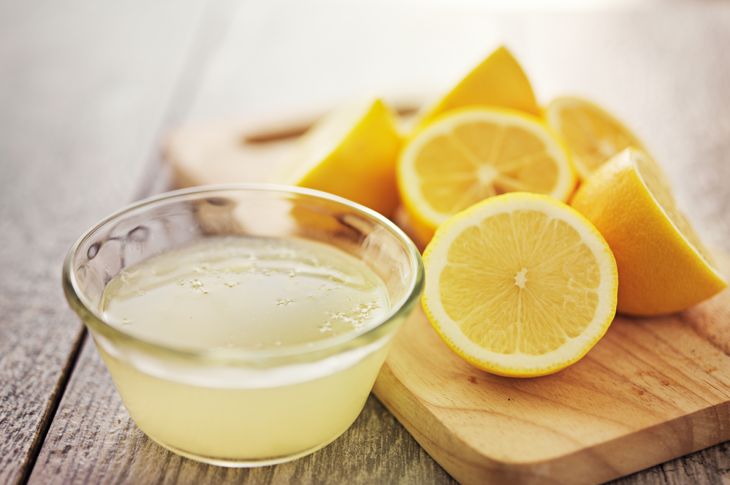Even though a kidney stone is a relatively minor ailment, it is still extremely painful. These stones built up when certain chemicals accumulate in the urine and interfere with the workings of the kidneys. Many have heard horror stories about large kidney stones that reach the size of a golf ball, but in most cases, they are less than a few millimeters in diameter, so there’s no surgical procedure needed. However, even small kidney stones can be very painful for a couple of days. If a remedy for kidney stones if required, the size of the stone and its position in the body determine the best approach.
Wait Patiently
In most cases, a kidney stone will pass through the body and out on its own. A doctor recommends the patient remains at home. They advise them to drink plenty of water to make sure that their urine comes out as clear as possible. They need to wait patiently for the kidney stone to exit their body in the urine. The doctor will probably ask the patient to filter their urine, for example, through special gauze or screen. This is so that they notice when the stone exists. When they observe the kidney stone, they bring it to the doctor. He or she checks it to decide if any further treatment is needed. If the pain is tolerable, the doctor might allow them to wait over a month for the stone to come out.
Prescription Medication
Doctors prescribe medications to relieve the severe pain that kidney stones can cause. They can also give the patient an anti-nausea medicine if this illness makes them feel sick. Some patients need both the painkiller and the anti-sickness medication. If the pains are particularly severe, the doctor might give a painkiller injection. If this fails to provide sufficient relief, they could administer a second dose half an hour later. Hopefully, these treatments will be enough to allow the patient to stay home until the kidney stone exits their body.
Dissolving the kidney stone
The doctor will run tests to see if the kidney stone is composed of uric acid. In this case, there is a good chance the condition can disappear on its own. The patient just needs to follow a regular drinking routine. Usually, doctors recommend that they drink at least five pints of water per day to soften the stone until it passes out of their system. Sometimes they need to use medicine to supplement this water intake.
When Hospitalization Is Needed
The patient’s situation leads the doctor to send them to the hospital instead of the home care option. This is the case if the kidney stone is larger than ¼ inch and unable to pass through the body quickly. Clinical care is also necessary for someone who only has one kidney. Anyone who is pregnant or elderly should also expect to be sent to the hospital, and the same applies to a person showing signs of dehydration. After they give a painkiller injection or anti-sickness medicine, the doctor keeps the patient under observation for an hour or so. If they do not see any sign of significant improvement, they send their patient to the hospital.
Extracorporeal Shockwave Lithotripsy (ESWL)
ESWL is one of the most common options for kidney stones that are too large to exit the body through urine. The surgeon uses an ultrasound device to locate the kidney stone’s exact position. Shock waves break up the stone into small pieces so they can leave the body in the urine stream. The downside of ESWL is the fact that it is very painful, but the surgeon typically offers a pain medicine before they begin. ESWL is almost always effective with stones of up to ¾ inch in diameter, and sometimes a little larger.
Ureteroscopy
If you think that ESWL sounds painful, it might appear to be the milder alternative to ureteroscopy. This is the preferred remedy for kidney stones in the ureter. Sometimes medical professionals also refer to this as retrograde intrarenal surgery (RIRS). It involves the surgeon inserting a ureteroscope into the bladder through the urethra. The surgeon might then try to remove the stone with a unique instrument. The whole procedure is done under general anesthetic. It succeeds in the majority of cases where the stone is not larger than ½ inch.
Percutaneous Nephrolithotomy (PCNL)
PCNL is optimal for larger stones, or with overweight patients. Like many procedures, PCNL requires the patient to have a general anesthetic. The surgeon makes a tiny hole in the patient’s back and inserts a very thin tool. They pass this instrument through the hole into the kidney and try to extract the stone or break it up. They try to this using a laser beam. The procedure has a very high success rate for kidney stones as big as one inch in diameter or even a little larger.
The Surgeon’s Scalpel
In very rare cases, for example, where the kidney stone is too large for any of the standard removal methods, the surgeon might opt for traditional surgery. The patient receives a general anesthetic. The surgeon makes an opening in their back to access the location where the stone became stuck, and they extract it with one of their instruments.
The Lemon Juice Natural Remedy
These days, a large number of people seek out natural remedies for all kind of health problems. It’s not surprising that kidney stones are no exception. One of the most well known of these treatments uses a combination of lemon juice, olive oil, and the juice of raw apples. This is meant to be taken every hour. As is the case with many natural cures, there is a debate about how effective it is. If you experience severe pains, you should go to the doctor rather than take any chances.
Magnesium Supplements
Research suggests that people who suffer from frequent kidney stone problems may benefit from taking magnesium supplements. Some claim that taking 300 mg of magnesium each day helps prevent kidney stones forming. There’s also reason to believe that magnesium reduces the frequency of kidney stones.

 Home
Home Health
Health Diet & Nutrition
Diet & Nutrition Living Well
Living Well More
More




















